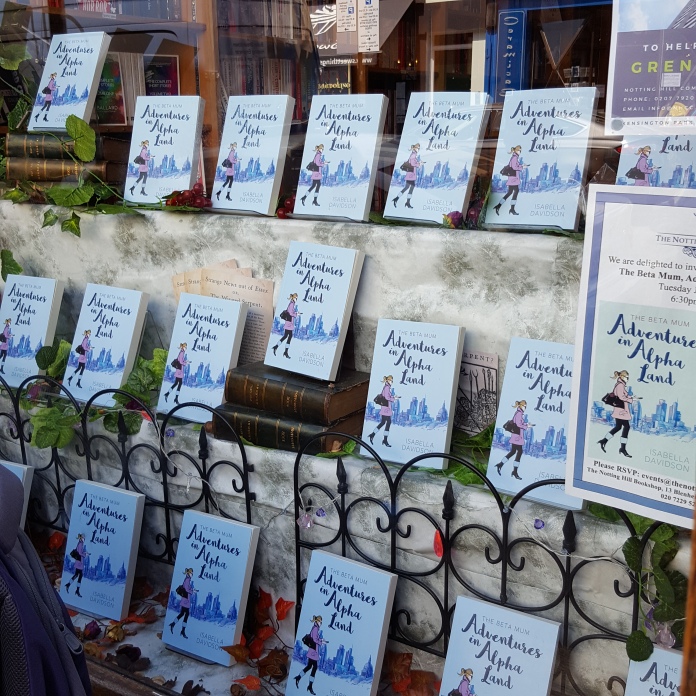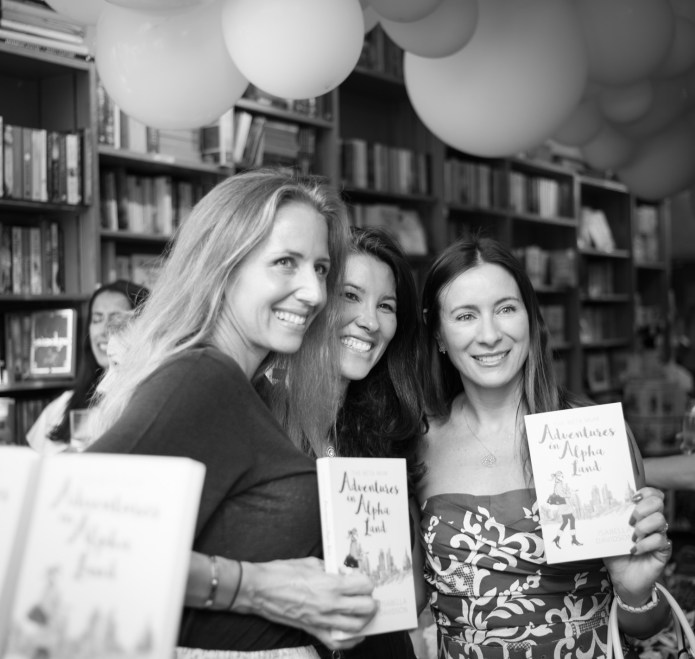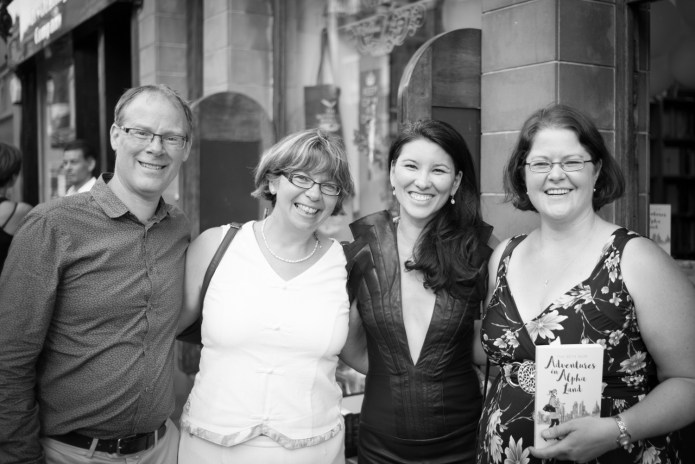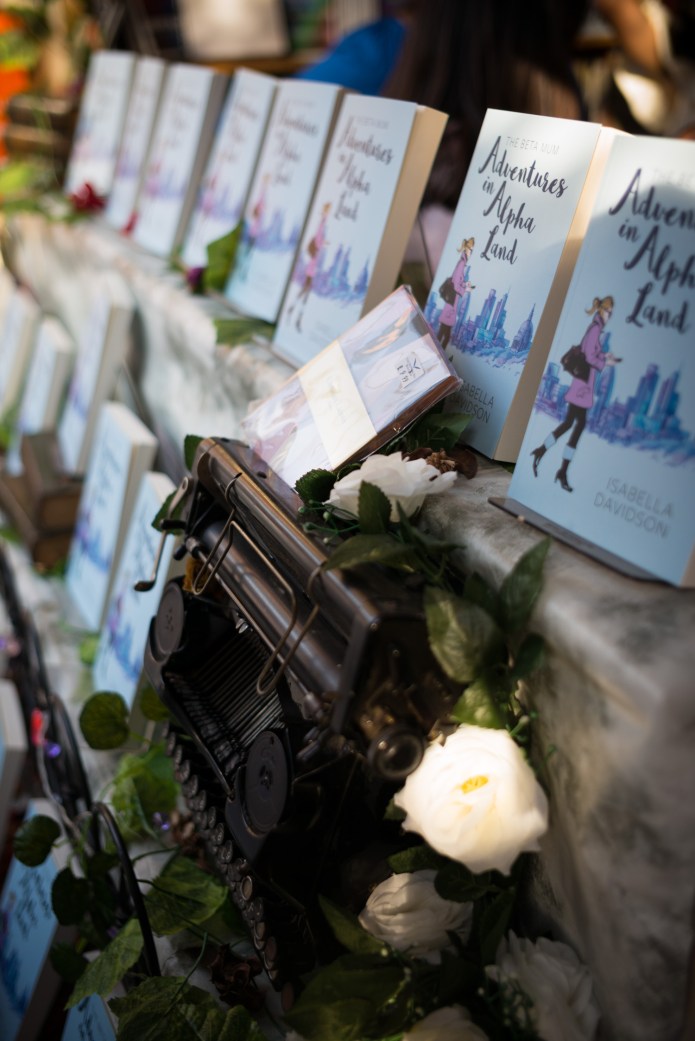I am now famous in Denmark. Thanks to Google Translate, here is a somewhat understandable English version!
http://www.information.dk/516532

Here is the upper class butlers for the very richest
The global inequality has exploded since the financial crisis began in 2008 – today owns 85 persons, according to Oxfam the same as the poorest half of the world’s population. A good number of them live in London, which today has the highest concentration of the ultra rich on the globe. Britain’s old upper class? The breadwinner as the new global elite butlers
Neighbors to the super-rich elite in London are concerned about the vulgar by the new wealth and the way it changes the neighborhoods on
By Mette Rodgers
November 22, 2014
There is something familiar about the crooked smile and confident look that stares directly into the camera lens and pass on the reader of The Evening Standard – free newspaper, as thousands of travelers in London daily leafs through on the way home from work. It’s the same scene familiar appearance, which almost daily meetings the same travelers when the country’s finance minister to appear on television screens and talks about the need to cut public sector to get its monstrous debt to life.
But it is not the British finance minister, George Osborne, who relaxed and with folded arms has let himself photographed against a burgundy colored wall, but his younger brother, 29-year-old Theo Osborne.
The occasion is the realization of his latest business idea – the opening of an exclusive concierge service for the ultra rich world citizens who in recent years have flocked to London.
Young Osborne is confident that there is demand for his service, which will cost customers about 50,000 pounds (about 476,000 kr.) per year, but in return gives them free-for-all not only in London but globally.
“Our customers are poor in time, so we are a kind of support system that procures everything from a last-minute private jet for a table on Friday night at Zuma. How, “he explains in the newspaper.
“I have access to all Grand Prix races, tickets to the Oscars, admission to saddle Square (at the racetrack), backstage passport. Some companies organize tickets for people who want to enter and see Bon Jovi, but we organize passport, allowing access to meet him backstage. You can get everything you want. Okay – there are things I have not been asked and have not thought about, but if someone asks us something, we will go to the ends to arrange it, “explained the young businessman, whose father is a baron Peter Osborne – co-founder of the luxurious Tapet- and drug company Osborne & Little, which his sons now each own 15 percent of.
The family Osborne other words, part of Britain’s historic upper class and has millions of pounds in the bank account, which places them firmly within the country’s richest one percent. Yet their wealth vanishingly small compared to the power of wealthy people who have settled in London since the financial crisis began in 2008.
The influx has transformed London to the city in the world that has the greatest concentration of dollar billionaires – all over 72 – in front of Moscow (48), New York (43) and San Francisco (42). Not to mention the 4,224 so-called UHNWI (Ultra High Net Worth Individuals); ie, those who have at least 30 million. dollars (180 million kr.) in the bank beyond their real estate. You have London also has the highest concentration of the world.
The new global elite has turned upside down on the centuries-old social hierarchy, which represents Britain’s class system, with the whimsical effect that the less rich – the old upper class – now have found a new source of revenue by serving the newcomers. It tells Roger Burrows, professor of sociology at Goldsmiths University, who is working on a research project in London’s super-rich neighborhoods.
“A lot of the wealthy Britons now earn their fortunes by working for the ultra rich. In Mayfair area for example, there are family offices, often led by people who are themselves very rich – British entrepreneurs and aristocrats, who has become a new butler class.
They offer a kind of cultural introduction to horse racing and clubs and can take care of the horses, planes, culture. They can also manage hedge findings (investment business, ed.) And invest the outsiders’ money, “says Roger Burrows and call Theo Osborne ‘the way’. But it is his minister brother.
»Osborne, (Prime Minister David) Cameron and Tory Party is basically butler class. They are rich, but they are not so rich – and their job is to ‘provide policy, darling’, “says Burrows.

No home
The old upper class has become the new TSI butlers, but who is the new upper class then? A visit to the so-called ‘Alfa-territory’ – areas such as Westminster, Knightsbridge, South Kensington, Holland Park and Mayfair in West and North London – where the ultra rich, according to the estate agents live, provides little hint. In addition to individual expensive-dressed women, it is primarily masons and craftsmen who rummaging in the neat, well-maintained streets.
In every street in the exclusive Belgravia district, where foreign embassies located side by side, facing containers with construction waste parked between Ferraris, Porsches and black SUVs of more modest brands like Mercedes and Audi. A housing at least. street wrapped in easel in the four-storey height, and there will be a constant engine noise and hammering from houses with open doors.
In Capel Street has number 13 just changed hands at a price of 67 million. kr. It is a narrow, four-story town house on 344 m2 and with six bedrooms. At the corner of Cadogan Place sweeping an elderly man leaves off around the plants in front of no. 69 – a beautiful white house with matching metal shutters on the windows. In Wilton Cres is a woman in the process of polishing the brass plate at the house’s front door.
“I meet them now and then,” says Amanda Frame, founder of the exclusive architectural firm Bauencorp whether its new ultra-rich neighbors.
Although she moved to Kensington from Florida 28 years ago with her British husband and bought their current home. It is a classic townhouse on two floors, situated next to a quiet road and overlooking a beautiful red brick church and a small park.
“But it’s more their nannies and cleaning people I meet when airing the owners’ dogs. For they are not even here, “adds the retired but still active woman who is also chairman of the residents’ association Kensington Society.
A newly built luxury complex of seven houses with names like Wolfe House and Charles House on Kensington High Street confirms her claim. In this dim, dim October afternoon there is no light in any of the hundreds of windows into luxury apartments at prices between almost nine and 74 million. kr. Nobody goes in or out of the lit entrances. The only people seem to be receptionists and concierges.
“Two of my friends went down to look at the apartments and they were told that all of them had been sold sight unseen over a site in Singapore,” says Amanda Frame.
Roger Burrows confirms that the ultra-rich do not settle in London in the traditional sense. How to live this population not.
“They are a very diverse group,” he said. “The only thing they have in common is this enormous wealth, and that it comes from large capital investments. And so they live together. They bring together very closely on specific areas in the world’s cities and especially in London, “he added, describing the areas where they settle, as” some of the most varied ethnic neighborhoods, you can imagine. ”
“Many have 3 to 4 houses around the globe, so they spend only part of the year here,” continues Burrows, adding that “40 percent of the properties are empty in parts of Westminster most of the year.” It’s one of the reasons that he and his colleagues have found it difficult to get the group to speak to their research. Another is – explains director Patrick Bullick the exclusive realtor Stanley Chelsea – to the ultra-rich are an extremely shady race.
“There is no hope,” he explains Informations emitted, who had hoped that he could be a way into the ultra rich world.
“These people want privacy – especially the press,” he adds.

Private parks and clubs of London’s most exclusive neighborhoods are attractive to the global elite of super-rich. A block in Belgravia and Kensington offers privacy and is also a good financial investment.
Focus on inequality
Until a year ago, the world’s small class of ultra rich allowed to go in peace with the escalation of their income and assets, as discreetly increased the economic distance between them and the rest of the world’s population. Ever lower taxation of wealth and growing use of tax havens has in the decades after the Cold War meant that no one knew much about the size and distribution of the planet’s wealth. Forbes magazine’s Top 100 list of the richest, as whiskeys forward to the assets’ size from a lot of different factors was the best attempt at a glance.
But then came the French economist Thomas Pikettys capital of the 21st century in English translation. In the book, which became a global bestseller and was published this week in Danish showdown Piketty inequality in a more detailed manner than the previous. Rather than cooking the disparity down to a single number, such as the widespread Gini coefficient showdown Piketty inequality at the tables to establish asset and income distribution in different percentages of the population.
Pikettys calculation showed that the existing inequality assessments had camouflaged a particular development: the richest one percent and even more so the very richest one per thousand have increased their economic lead from us.
In Europe, London has been the discrete upper percent hangout. Because of the city’s financial center and because of its lucrative property market. This status has in recent years have had major political consequences for Britain. The British government’s efforts to protect the City – the world’s largest financial center and breeding ground for the ultra rich growing fortunes – has been the main reason for the increasingly troubled relationship between London and the rest of the EU.
Recently fought the British Government a tough fight against an upper limit in the EU for bonuses in the banking world.
Previously opposite the the introduction of a Tobin tax on financial transactions – a darling of both the French and German governments – not to mention the December summit in 2011, when David Cameron vetoed the fiscal pact, as it managed to get a number of safeguards through which should protect the stock trading in the City. Confrontation policy has contributed to the fact that relations between London and Brussels are currently at rock bottom, and the voices of up to Cameron even raised the question whether the UK at all belong in the EU.
MR
While asking London’s old upper class themselves who their new neighbors really are. One so-called BWAG (Banker’s Wife And Girlfriend) has rubbed shoulders with the super rich and written about it on his blog nottinghillmummy.com. She’s too busy to meet with Information released because she “runs manic between school and activities most days,” she explains in an email where she still agrees to answer a few questions. In addition, she refers to a description of the difference between his own privileged life and the super rich, she has written – anonymously – to The Times Magazine.
The article confirms she is the ultra rich enormous discretion urge.
“They are attracted to the city because it is one of the few places in the world where privacy is valued so high, and where to move from private members clubs to private cars for private airplanes without ever set foot on a public sidewalk,” she writes, and explains: “Although New York does not have this degree of self-isolation. In London, there are private membership clubs, private schools, private gardens, private children member clubs, access to private jets. ”
Even the Notting Hill Mummy married to an investment advisor and live in a house in Chelsea, in particular, contains a nanny apartment, a children’s playroom “with enough toys to open a Toys’ R ‘Us’ and a’ mini-gym ‘. The house is located – she recognizes – in the periphery of the core region with a ‘less attractive ZIP code, “but where houses cost only half as much as in the most attractive areas with postcodes as SW1X, SW3, SW7 or W11. According housing since Zoopla is currently 227 properties – houses and apartments – for sale SW1X with an average asking price of 67 million. kr. In SW3 is average asking price 28 million. kr., in SW7 is 32 million. kr. and W11 21 million.
These properties, however, “not what we consider to other houses,” says Notting Hill Mummy who have visited what she calls a ‘superhus’.
“They are micro cities with husbestyrere acting as CEOs and leading them as small businesses. They are built to deliver, whatever their owner should want to. Exercise and morning swims?
Let us build a swimming pool in the basement with a gym next door. Movies? Let us build a cinema with 12 seats. For children build playrooms with slides, cable cars and climbing walls. Doctors, hairdressers, massage therapists and Reiki healers are on speed dial. These houses are so big and so well-designed that there is never any need to leave them, “she writes.
Why London?
The influx of investment has really heated London’s already expensive housing market. Housing prices in recent years has grown about 20 percent a year on average.
“London’s housing market represents an investment rather than a consumption strategy. People do not buy these properties to live in them, they use them as an investment container, “says Roger Burrows, backed by Patrick Bullick, adding that especially shady money has found its way to London.
“If you are Nigerian diamond smuggler, you would not be able to put your money into a Swiss bank account after Swiss banks have been forced to clean up their businesses. Instead you place them in the London housing market. And voila, the diamond money has become a big, lovely house. Where did the Russian oligarchs got their money from, if you think about it? “Asks real estate agent rhetorically.
For investors, London has many advantages, he says.
“There are stable ownership; there is a strong financial system, between the Far East and New York; there is easy access to Europe; and we speak English, which is the international business language, “says Bullick.
“Additionally, there are good schools, a good cultural and theater. If you are from the Middle East and come with your seven wives, so they can not be allowed to wear their burqas in Paris, but they can here. London is very spacious. ”
Finally, attention Bullick that foreign homeowners do not have to pay tax on profits when they sell their houses.
The city changes character
Precisely the non-taxation of property investment is a subject that Amanda Frame can talk at length about. According to her, it is the one that has transformed a lively community of neat, but deserted construction sites.
“The problem is not that the super rich have moved in. The problem is that the super-rich purchasing the property, but not moving in. They only come when it is summer in Dubai, or when they need to buy Christmas presents. Meanwhile, we have experienced a purge of permanent residents who vote and goes up in the community, “she says, adding that” not a single one has joined ‘in the local Civic Association, among other things, fighting to preserve the area’s historical and architectural character.
Which in itself is possibly one of the reasons that the newcomers will not be with, she recognizes it is often their excavation of basements, conversions of earlier transactions for residential and total renovations behind the classical facades which local association fighting against.
“They like buildings in conservation areas where the river all the historic interior of the houses. There was recently a listed building that was totally boned. The municipality brought an action against the owners, who received a fine of 3-4,000 pounds (30-40,000 kr., Ed.). But it is equivalent to the price of a handbag for these people, “says Amanda Frame, which says that the area where she lives in Kensington W11, has changed to a degree, so she no longer has a place where she can slip out and buy a pint of milk.
In Belgravia found Information only one convenience store – a Waitrose, where a robust driver in black suit was pending between the entrance and a four-wheel drive Ferrari.
“We used to have a dry cleaning at the end of our block; a kiosk, a glazier, a pharmacy, an architect’s office – they are all gone. The local Prince of Wales pub was sold. Now there is a huge house with a swimming pool in the basement. The law firm has been converted to housing and is now on the market for 11 million. pounds (105 million. kr.). Who can afford it? “Asks Frame.
According to sales statistics, the answer is that two-thirds of the buyers of these expensive houses are foreigners.
Amanda Frames concerns are well known for Roger Burrows, sociology professor, who has had good contacts with just her group. They are rich, but not in the global league and they want to talk, ‘because they see what is happening as a threat to their way of life’.
“There is a general concern about the vulgar by the new wealth and the way it changes the neighborhoods on,” he said, adding that private security guards at the entrances to some of the houses is a concern for where the owners have got their wealth from.
Consequences for the 99 per cent.
Notting Hill Mummys criticism of the super-rich is not an invitation to others to ‘feel sorry for us – for it must not’. She states simply that the ‘banker bashing “that occurred in the wake of the financial crisis today is’ irrelevant’, because it is no longer the bankers with their fat bonuses from the financial district City, which is responsible for the transformation of London.
“The international super-rich collectors on houses as a game of Monopoly. They have flocked to areas such as Chelsea and Kensington and neighboring districts. It is absurd for me to see that my friends from families with two incomes of 500,000 pounds (4.7 million. Kr.) From big City Banks can not afford to buy housing in central London, “she writes.
Roger Burrows has not hurt the bankers, but he acknowledges that ‘they are not the problem here. ”
“The bankers and lawyers are actually some of those who are being squeezed out,” he said.
“My concern is the city where the rich go when they are being supplanted by the ultra rich. People who can afford to 10m., But not to 40 million.? It is not only gentrification – the replacement of the working class with the middle class. It’s super-gentrification; even super-super-gentrification. ”
Another way that the advent of the super-rich affects the remaining 99 percent is that this new super-rich class not as its predecessor in Victorian times feel particularly connected to London.
“Very few of these people have no link to somewhere. They are never in the public domain and do not know much about what the world looks like. Their geographical understanding rows not very far out of West London. Their wealth is not like in Victorian times socially oriented, but very private and highly segregated. They may be linked to a football team or a gallery, while Victoria-era super rich invested in places – in parks, halls, public infrastructure, in galleries. The money is currently uncertain money. This is money associated with a non-place, “says Roger Burrows.
Inequality corrupts
The ultra-rich are not only a problem, he acknowledges. Although many of them because their revenue comes from overseas, do not pay income tax and therefore only council in the UK (the City of London is the maximum municipal currently just under 18,000 kr. Per year), their presence creates employment.
Patrick Bullick is also convinced that an announced tax changes, which from 2015 will mean that non-resident speculators will be taxed on profits from real estate matters, will reduce the negative effect of the super rich presence.
“It will definitely change something – for the richest group. If the prices of the houses in the most expensive houses fall, the houses at the top also fall, “he said.
Roger Burrows – and rows of other real estate – are less optimistic. The new tax is too soft to make a difference, they say, and Burrows doubt that the ultra rich ‘cares about the tax on capital gains on their investments in the London housing market will outweigh any concern. ”
On the whole, he is not sure that national politicians can do little about the developments by the day makes the very richest richer compared to the planet’s other inhabitants.
The organization Oxfam launched recently campaign Even it Up against the growing gap between the richest and poorest. According to Oxfam is one of the problems with the extreme inequality that it “corrupts politics and impede economic growth.” According to their calculations owns 85 persons in 2014 the same as the poorest half of the world’s population.
Just as Thomas Piketty want Oxfam global taxation of extreme wealth – A tax of 1.5 percent of the world’s billionaires, according to the organization could raise 440 billion. kr.
Roger Burrows doubt, however, that no politician in Britain, whose economy depends largely on the City’s financial services will cripple the district’s customers. The sector in 2010 amounted to almost 10 percent of the country’s GDP, the highest of any G7 country. And even if the politicians would, he is not sure that they could.
“I do not believe that national policy can do little more than to mediate in relation to these global transformations,” he said, predicting that “we will experience growing similarity among the 99 percent, while the emergence of a very small league with god by the consequences. ”
The new reality
Notting Hill Mum is just tired of that rich Russians have doubled the price of a good nanny to 7,600 kr. per week plus bonuses such as “a Burberry raincoat, Saint Laurent sunglasses Tod’s shoes and Hermes handbags’. Most of all, she is concerned about how it affects her children to be surrounded by what she calls a ‘fantasy world’.
She describes how the children have been invited to birthday parties in the ‘ballrooms in Dorchester, Berkley and Mandarin Oriental hotel, which has been changed into a mini-Disneyland complete with carousels, rides, magicians, jugglers, popcorn machines, ice cream machines, face painters, ballonskulptører and inflatables. ‘
‘It worries me that my daughters’ school is full of super rich, how it will affect their perspective on life, whether they will feel a legitimacy that is not justified. I do not want that they should grow up and believe that the kind of wealth is normal, “writes Notting Hill Mum in a more serious reflection upon Information.
The replacement of permanent residents with a non-resident global elite is Amanda Frames biggest concern.
“I want foreign buyers – who are not resident in the UK – are taxed higher. I want recognition for being resident, that I pay UK tax, and for that I am contributing to British society, “she says.
xx
NHYM
http://www.nottinghillyummymummy.com
@NHyummymummy






































